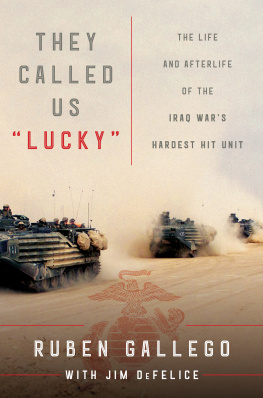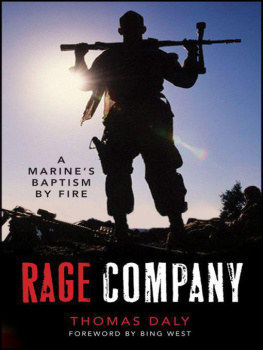Ruben Gallego - They Called Us Lucky: The Life and Afterlife of the Iraq Wars Hardest Hit Unit
Here you can read online Ruben Gallego - They Called Us Lucky: The Life and Afterlife of the Iraq Wars Hardest Hit Unit full text of the book (entire story) in english for free. Download pdf and epub, get meaning, cover and reviews about this ebook. year: 2021, publisher: HarperCollins, genre: Non-fiction. Description of the work, (preface) as well as reviews are available. Best literature library LitArk.com created for fans of good reading and offers a wide selection of genres:
Romance novel
Science fiction
Adventure
Detective
Science
History
Home and family
Prose
Art
Politics
Computer
Non-fiction
Religion
Business
Children
Humor
Choose a favorite category and find really read worthwhile books. Enjoy immersion in the world of imagination, feel the emotions of the characters or learn something new for yourself, make an fascinating discovery.
- Book:They Called Us Lucky: The Life and Afterlife of the Iraq Wars Hardest Hit Unit
- Author:
- Publisher:HarperCollins
- Genre:
- Year:2021
- Rating:3 / 5
- Favourites:Add to favourites
- Your mark:
They Called Us Lucky: The Life and Afterlife of the Iraq Wars Hardest Hit Unit: summary, description and annotation
We offer to read an annotation, description, summary or preface (depends on what the author of the book "They Called Us Lucky: The Life and Afterlife of the Iraq Wars Hardest Hit Unit" wrote himself). If you haven't found the necessary information about the book — write in the comments, we will try to find it.
From the Arizona Congressman, a 21st-century Band of Brothers chronicling the eternal bonds forged between the Marines of Lima Company, the hardest-hit unit of the Iraq War
At first, they were Lucky Lima. Infantryman Ruben Gallego and his brothers in Lima Company3rd Battalion, 25th Marines, young men drawn from blue-collar towns, immigrant households, Navajo reservationsreturned unscathed on patrol after patrol through the increasingly violent al Anbar region of Iraq, looking for weapons caches and insurgents trying to destabilize the nascent Iraqi government. After two months in Iraq, Lima didnt have a casualty, not a single Purple Heart, no injury worse than a blister. Lucky Lima.
Then, in May 2005, Limas fortunes flipped. Unknown to Ruben and his fellow grunts, al Anbar had recently become a haven for al Qaeda in Mesopotamia. The bin Laden-sponsored group had recruited radicals from all over the world for jihad against the Americans. On one fateful day, they were lured into a death house; the ambush cost the lives of two men, including a platoon sergeant. Two days later, Rubens best friend, Jonathon Grant, died in an IED attack, along with several others. Events worsened from there. A disastrous operation in Haditha in August claimed the lives of thirteen Marines when an IED destroyed their amphibious vehicle. It was the worst single-day loss for the Marines since the 1983 Beirut bombings. By the time 3/25 went home in November, it had lost more men than any other single unit in the war. Forty-six Marines and two Navy Corpsmen serving with the battalion in Iraq were killed in action during their roughly nine-month activation.
They Called Us Lucky details Ruben Gallegos journey and includes harrowing accounts of some of the wars most costly battles. It details the struggles and the successes of Rubennow a member of Congressand the rest of Lima Company following Iraq, examining the complicated matter of PTSD. And it serves as a tribute to Rubens fallen comrades, who made the ultimate sacrifice for their country.
Ruben Gallego: author's other books
Who wrote They Called Us Lucky: The Life and Afterlife of the Iraq Wars Hardest Hit Unit? Find out the surname, the name of the author of the book and a list of all author's works by series.









